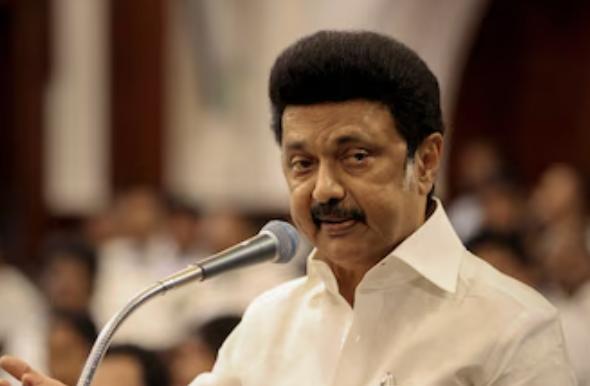
TN will be hit hard, lakhs of jobs at risk: Stalin on US tariffs
The recent announcement by US President Donald Trump imposing a 50% tariff on India has sent shockwaves across the country, particularly in Tamil Nadu. The state’s Chief Minister, MK Stalin, has expressed grave concerns over the potential impact of this move on the state’s economy. In a recent tweet, Stalin emphasized that Tamil Nadu will be hit harder than most states due to its deep ties with the US market. According to him, lakhs of jobs in various sectors are at risk of being lost.
Stalin’s concerns are not unfounded. Tamil Nadu is one of the leading textile and leather-exporting states in the country. The state’s textile industry, in particular, has been relying heavily on exports to the US market. The imposition of tariffs on Indian textiles will make them less competitive in the global market, leading to a significant decline in exports. This, in turn, will have a ripple effect on the employment landscape in the state.
The textile industry is a significant employer in Tamil Nadu, with thousands of people employed directly and indirectly. The industry’s growth has been fueled by the state’s favorable business environment, skilled workforce, and proximity to the major ports. However, the tariff imposition could wipe out the gains made by the industry in recent years, leaving lakhs of people without jobs.
Stalin has urged Prime Minister Narendra Modi to take swift action to mitigate the impact of the tariff imposition. He has specifically requested the Prime Minister to fix the Goods and Services Tax (GST) on man-made fibers at 5%. This move, according to Stalin, will help to ease the burden on the textile industry and protect the jobs of thousands of people.
The Indian government has been negotiating with the US administration to reduce the tariffs, but so far, there has been no breakthrough. The Indian textile industry has been seeking a reduction in tariffs to prevent a significant decline in exports. However, the US administration has been unwilling to budge, citing national security concerns.
The tariff imposition is not just a matter of trade; it also has significant implications for the employment landscape in Tamil Nadu. The state’s economy has been growing steadily in recent years, driven by the growth of the services sector, manufacturing, and infrastructure development. However, the tariff imposition could derail this growth momentum, leading to widespread job losses and economic uncertainty.
The textile industry is not the only sector that will be affected by the tariff imposition. The leather industry, which is another significant employer in Tamil Nadu, will also feel the pinch. The state’s leather industry exports a significant portion of its produce to the US market, and the tariff imposition will make it less competitive. This could lead to a decline in exports, resulting in job losses and economic hardship for thousands of people.
Stalin’s concerns are not limited to the textile and leather industries. He has emphasized that the tariff imposition will have a broader impact on the state’s economy, affecting lakhs of jobs across various sectors. The state’s economy is heavily reliant on exports, and the tariff imposition will make it difficult for businesses to compete in the global market.
In conclusion, the tariff imposition by the US administration on Indian textiles will have a significant impact on Tamil Nadu’s economy. The state’s textile and leather industries will be disproportionately affected, leading to lakhs of job losses. Stalin’s request to the Prime Minister to fix the GST on man-made fibers at 5% is a welcome move, but more needs to be done to mitigate the impact of the tariff imposition.






